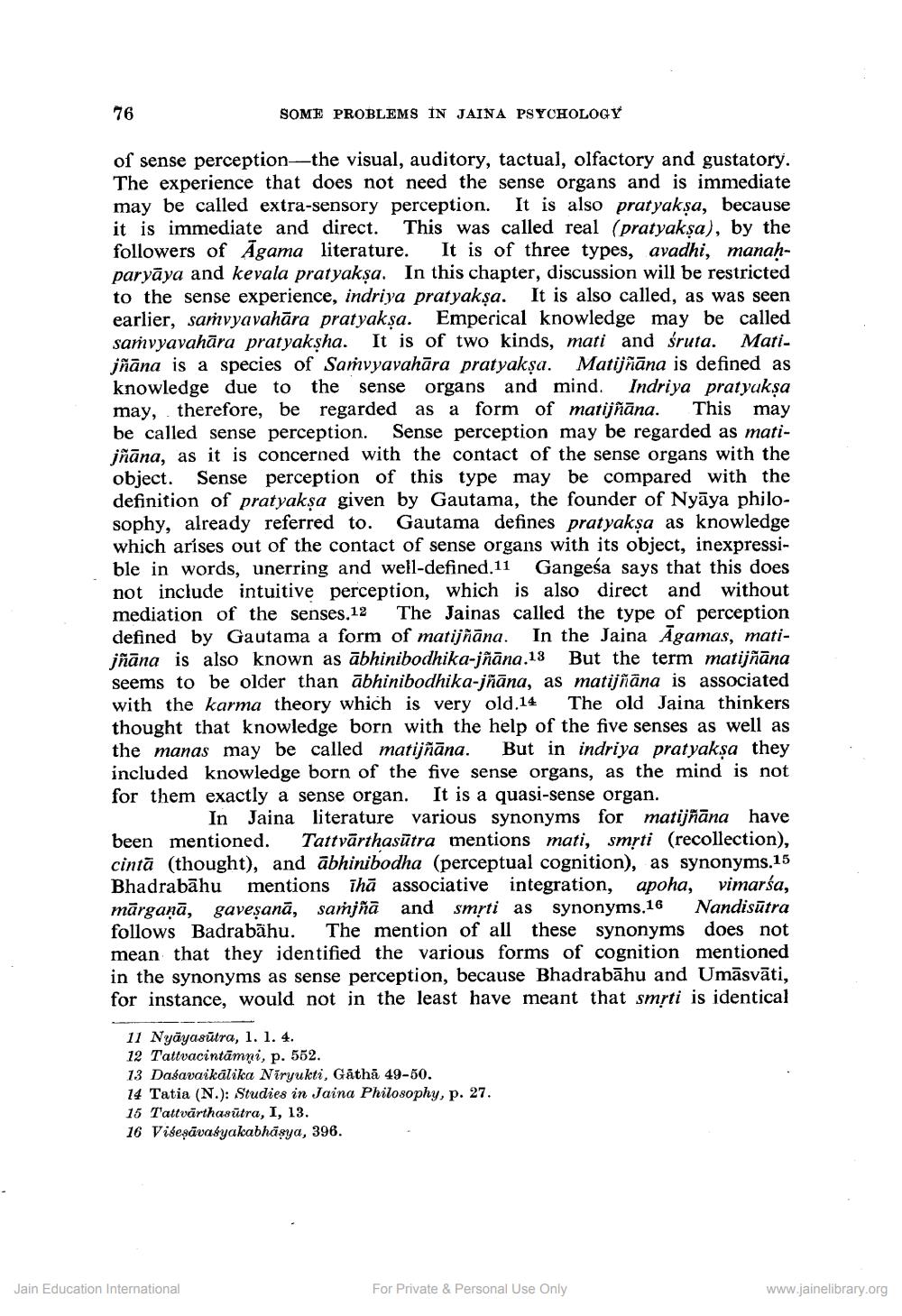________________
76
SOME PROBLEMS IN JAINA PSYCHOLOGY
of sense perception-the visual, auditory, tactual, olfactory and gustatory. The experience that does not need the sense organs and is immediate may be called extra-sensory perception. It is also pratyakṣa, because it is immediate and direct. This was called real (pratyakṣa), by the followers of Agama literature. It is of three types, avadhi, manaḥparyaya and kevala pratyakṣa. In this chapter, discussion will be restricted to the sense experience, indriya pratyakṣa. It is also called, as was seen earlier, samvyavahāra pratyakṣa. Emperical knowledge may be called saṁvyavahāra pratyaksha. It is of two kinds, mati and śruta. Matijñāna is a species of Samvyavahāra pratyakṣa. Matijñāna is defined as knowledge due to the sense organs and mind. Indriya pratyakṣa may, therefore, be regarded as a form of matijñāna. This may be called sense perception. Sense perception may be regarded as matijñāna, as it is concerned with the contact of the sense organs with the object. Sense perception of this type may be compared with the definition of pratyakṣa given by Gautama, the founder of Nyaya philosophy, already referred to. Gautama defines pratyakṣa as knowledge which arises out of the contact of sense organs with its object, inexpressible in words, unerring and well-defined.11 Gangeśa says that this does not include intuitive perception, which is also direct and without mediation of the senses.12 The Jainas called the type of perception defined by Gautama a form of matijñāna. In the Jaina Agamas, matijñāna is also known as abhinibodhika-jñāna.13 But the term matijñāna seems to be older than abhinibodhika-jñāna, as matijñāna is associated with the karma theory which is very old.14 The old Jaina thinkers thought that knowledge born with the help of the five senses as well as the manas may be called matijñāna. But in indriya pratyakṣa they included knowledge born of the five sense organs, as the mind is not for them exactly a sense organ. It is a quasi-sense organ.
In Jaina literature various synonyms for matijñāna have been mentioned. Tattvärthasutra mentions mati, smrti (recollection), cintă (thought), and abhinibodha (perceptual cognition), as synonyms.15 Bhadrabahu mentions īhā associative integration, apoha, vimarśa, mārgaṇā, gaveṣanā, saṁjñā and smṛti as synonyms.16 Nandisutra follows Badrabähu. The mention of all these synonyms does not mean that they identified the various forms of cognition mentioned in the synonyms as sense perception, because Bhadrabahu and Umāsvāti, for instance, would not in the least have meant that smrti is identical
11 Nyayasutra, 1. 1. 4.
12 Tattvacintamņi, p. 552.
13 Daśavaikálika Niryukti, Gāthā 49-50.
14 Tatia (N.): Studies in Jaina Philosophy, p. 27.
15 Tattvärthasutra, I, 13.
16 Viseṣāvasyakabhāṣya, 396.
Jain Education International
For Private & Personal Use Only
www.jainelibrary.org




